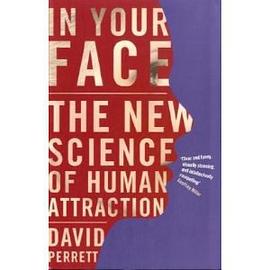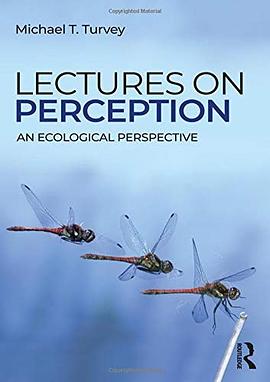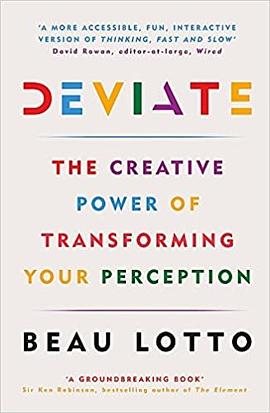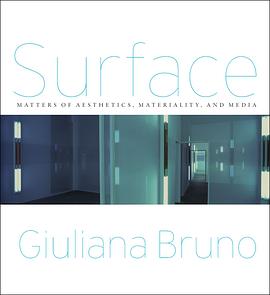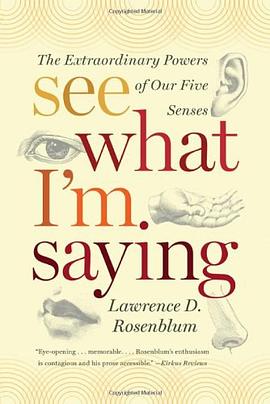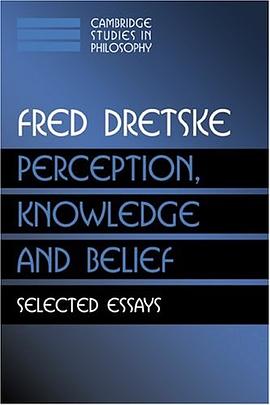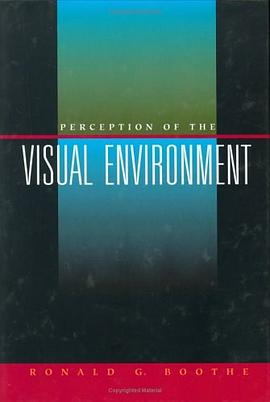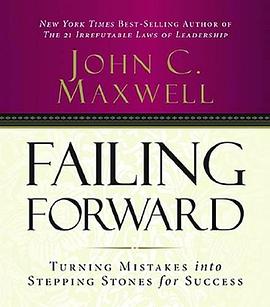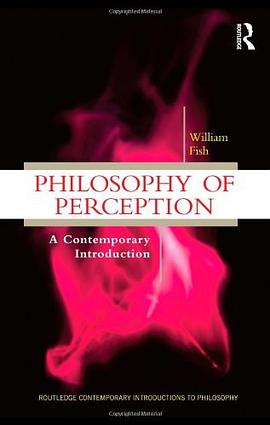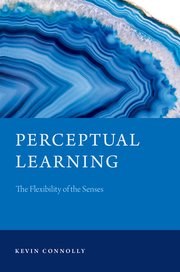

具体描述
xperts from wine tasters to radiologists to bird watchers have all undergone perceptual learning-long-term changes in perception that result from practice or experience. Philosophers have been discussing such cases for centuries, from the 14th-century Indian philosopher Vedanta Desika to the 18th-century Scottish philosopher Thomas Reid, and into contemporary times.
This book uses recent evidence from psychology and neuroscience to show that perceptual learning is genuinely perceptual, rather than post-perceptual. It also offers a taxonomy for classifying cases in the philosophical literature. In some cases, perceptual learning involves changes in how one attends; in other cases, it involves a learned ability to differentiate two properties, or to perceive two properties as unified. Connolly uses this taxonomy to rethink several domains of perception in terms of perceptual learning, including multisensory perception, color perception, and speech perception.
As a whole, the book offers a theory of the function of perceptual learning. Perceptual learning embeds into our quick perceptual systems what would be a slower task were it to be done in a controlled, cognitive manner. A novice wine taster drinking a Cabernet Sauvignon might have to think about its features first and then infer the type of wine, while an expert can identify it immediately. This learned ability to immediately identify the wine enables the expert to think about other things like the vineyard or the vintage of the wine. More generally, perceptual learning serves to free up cognitive resources for other tasks. This book offers a comprehensive empirically-informed account, and explores the nature, scope, and theoretical implications of perceptual learning.
作者简介
Kevin Connolly is a cognitive scientist and philosopher who works on learning. His research focuses especially on perception-based learning, as found in experts from wine tasters to radiologists to bird watchers. He is currently an Assistant Professor of Psychology at Minerva Schools at KGI-a new university founded on the principles of the science of learning-where he plays a central role in curriculum design for the School of Social Sciences. Prior to Minerva he was an Andrew W. Mellon Postdoctoral Fellow at the University of Pennsylvania.
目录信息
PART 1. THE NATURE OF PERCEPTUAL LEARNING
I. HOW TO UNDERSTAND PERCEPTUAL LEARNING
1.1 Introduction
1.2 What Is Perceptual Learning?
1.3 A Taxonomy of Perceptual Learning Cases
1.4 The Offloading View of Perceptual Learning
1.5 Looking Ahead
II. IS PERCEPTUAL LEARNING GENUINELY PERCEPTUAL?
2.1 Introduction
2.2 Skepticism about Perceptual Learning as Genuinely Perceptual
2.3 Introspective Evidence that Perceptual Learning Is Genuinely Perceptual
2.4 Neuroscientific Evidence that Perceptual Learning Is Genuinely Perceptual
2.5 Behavioral Evidence that Perceptual Learning Is Genuinely Perceptual
2.6 Conclusion
PART 2. THE SCOPE OF PERCEPTUAL LEARNING
III. LEARNED ATTENTION AND THE CONTENTS OF PERCEPTION
3.1 Introduction
3.2 The Phenomenal Contrast Argument
3.3 The Attentional Reply to the Phenomenal Contrast Argument
3.4 The Blind Flailing Model of Perceptual Learning
3.5 A New Attentional Reply to the Phenomenal Contrast Argument
3.6 Learned Attention and the Offloading View
IV. LEARNED ATTENTION II: SENSORY SUBSTITUTION
4.1 Introduction
4.2 Attentional Weighting in Distal Attribution
4.3 Latent Inhibition as a Kind of Learned Attention
4.4 Applying Principles of Attentional Training to Sensory Substitution
4.5 Perceptual Learning and Perceptual Hacking
4.6 An Empirical Test for Determining the Nature of SSD Experience
4.7 Conclusion
V. "CHUNKING" THE WORLD THROUGH MULTISENSORY PERCEPTION
5.1 Introduction
5.2 The Kind of Conscious Awareness We Have in Multisensory Perception
5.3 Unitization as a Perceptual Learning Mechanism
5.4 Applying Unitization to Multisensory Cases
5.5 Objections and Replies
5.6 Unitization and the Offloading View
5.7 Conclusion
VI. LEARNING TO DIFFERENTIATE PROPERTIES: SPEECH PERCEPTION
6.1 Introduction
6.2 The Phenomenal Contrast Argument for Hearing Meanings
6.3 The Argument from Homophones
6.4 The Role of Differentiation in Speech Perception
6.5 Why Perceptual Learning Does Not Support the View that We Hear Meanings
6.6 The Offloading View and Speech Perception
6.7 Conclusion
VII. LEARNING TO DIFFERENTIATE OBJECTS: THE CASE OF MEMORY COLOR
7.1 Introduction
7.2 Memory Color and Cognitive Penetration
7.3 A Brief Survey of Memory Color Studies
7.4 Why Memory Color Is Not a Mechanism for Color Constancy
7.5 Applying Differentiation to Memory Color
7.6 Memory Color and the Offloading View
7.7 Conclusion
CONCLUSION: PERCEPTUAL LEARNING BEYOND PHILOSOPHY OF MIND
ACKNOWLEDGEMENTS
REFERENCES
· · · · · · (收起)
读后感
评分
评分
评分
评分
用户评价
说实话,当我拿起《知觉学习》的时候,我本以为会读到一些关于如何快速学习新技能的“秘籍”,毕竟书名听起来很实用。结果发现,它比我想象的要深刻和学术得多,但这反而带来了一种更深层次的满足感。这本书的叙事节奏非常舒缓,仿佛一位经验丰富的导师在慢慢引导你走进一个全新的研究领域。它没有急于给出结论,而是花了大量篇幅去铺陈背景知识,让你对知觉学习的“土壤”——即感觉器官和初级皮层的运作方式——有一个扎实的了解。我尤其欣赏作者在解释“负迁移”和“正迁移”对知觉训练的影响时所采用的比喻,那些比喻非常贴切,瞬间打消了我对一些抽象概念的困惑。这本书的优势在于它的体系性,它不只是零散地介绍几个有趣的实验,而是构建了一个清晰的层级结构:从基础的细胞层面,到区域整合,再到整个行为表现。这使得读者可以很容易地追踪一个学习过程是如何在不同生物学尺度上发生的。虽然它不直接提供“快速学习指南”,但它教会了我一个更重要的东西:理解学习的内在机制,才能真正有效地去训练和提升自己的知觉能力。这本书更像是基石,而不是华丽的屋顶。
评分这本书对知觉学习的探讨,简直是给我的专业领域——应用心理学——投下了一枚重磅炸弹。它的视角非常“硬核”,毫不含糊地深入到计算模型和信息论的角度来解析知觉的优化过程。我注意到书中对“贝叶斯推断”在知觉形成中的作用有非常细致的论述,这让我眼前一亮。作者将知觉系统描绘成一个不断进行概率估计的机器,通过对先验知识的更新来最小化感知误差。这种将认知过程数学化的尝试,使得整本书的论证充满了力量感和精确性。与市面上那些偏重定性描述的读物不同,《知觉学习》提供了大量关于如何量化学习效果的工具和思路。我尤其关注了它在不同环境压力下,知觉适应性如何变化的案例分析,这些案例的严谨性几乎可以作为我未来研究的范本。对我来说,这本书的价值不在于它“教”了我什么具体的知觉技巧,而在于它提供了一种极其强大的“思考框架”,让我能够用更科学、更量化的视角去设计和评估任何涉及感官训练的干预措施。它推动我超越了简单的描述层面,进入到机制的精确建模阶段。
评分在阅读《知觉学习》的过程中,我体验到了一种非常独特的“慢阅读”的乐趣。这绝对不是那种可以一口气读完的书,因为它要求读者频繁地停下来,对照着自己日常的经验去反复咀嚼那些精妙的论述。作者的叙事风格非常具有人文关怀,尽管主题是高度科学化的,但字里行间流淌着对人类感知世界的惊奇与敬畏。我最欣赏它对“经验偏见”的讨论,它清晰地揭示了我们所依赖的“直觉”是如何建立在有限的知觉学习基础上的,以及这种基础是如何在面对全新环境时成为学习的障碍。书中描绘的那些关于“习惯化”和“敏感化”的对比研究,生动地展示了知觉系统在不同情境下的反应模式。整本书的语言虽然精确,但绝不枯燥,它似乎总能找到一个平衡点,既能满足对深度细节的探究,又能保持阅读的流畅性。读完之后,我发现自己对许多习以为常的感官体验——比如辨别细微的颜色差异或者在嘈杂环境中聚焦声音——都产生了新的好奇心和敬意。这本书让人明白,我们最基本的感觉能力,其实是宇宙中最精妙、最耗费资源的持续学习过程的产物。
评分我带着一种近乎学术探究的严谨态度翻开了这本《知觉学习》,而它的内容深度和广度,完全满足了我对一本严肃专著的要求。这本书的行文风格非常沉稳、逻辑链条清晰,每提出一个论点,都能迅速跟上详实的实证数据和历史回顾。它没有那种浮夸的、试图用流行语吸引眼球的倾向,而是脚踏实地地在构建一个关于知觉系统适应性的理论框架。尤其值得称赞的是,作者在处理不同学派观点时的公正性。在涉及到关于“先天结构”与“后天习得”的长期争论时,本书没有简单地站队,而是精妙地展示了两者是如何在动态的知觉学习过程中相互作用、缺一不可的。我特别喜欢其中关于“注意力机制如何调控知觉学习效率”的章节,它不仅仅描述了现象,更深入剖析了背后的生物学机制,那些关于突触连接强度的变化描述,读起来令人心悦诚服。对于我这种偏好理论构建的读者来说,这本书就像是一份详尽的蓝图,展示了知觉系统是如何从初级的信号接收器,逐步演化成一个高度专业化、适应性极强的智能处理器。读完后,我感觉自己对人类学习的本质有了更深层次的理解,它不再仅仅是知识的存储,而是一个持续优化感觉输入通道的过程。
评分这本《知觉学习》简直是打开了我认知的一扇新窗。说实话,一开始我对这个主题抱有很高的期待,毕竟“知觉”这个词本身就充满了奥秘,而“学习”则关乎我们如何适应和理解这个世界。这本书并没有让我失望,它以一种非常扎实但又极富洞察力的方式,探讨了人类感官系统如何通过经验和训练来不断优化和调整其信息处理能力。作者似乎非常擅长将复杂的神经科学概念转化为普通读者可以理解的语言,这在我看来是非常难得的。例如,书中对视觉皮层可塑性的讨论,通过生动的实验案例,清晰地展示了大脑如何根据环境需求进行“重新布线”。我印象特别深刻的是关于“跨模态学习”的那一章,它揭示了不同感官信息是如何相互影响、共同塑造我们对现实的感知。读完之后,我开始以一种全新的视角审视自己的日常生活,比如为什么有些音乐家对声音的辨识度如此之高,或者顶尖运动员如何能在一瞬间捕捉到细微的动作变化。这本书不仅仅是知识的堆砌,更像是一次思维的体操,它引导你质疑那些你认为是“天生”的能力,转而思考它们究竟是如何被塑造和精炼的。它迫使你思考,我们所感知的“真实”世界,其实是经过大脑不断筛选和预测的结果。对于任何对认知科学、心理学乃至人机交互感兴趣的人来说,这本书都是一份宝贵的资料,它提供了坚实的理论基础和无数激发思考的路径。
评分 评分 评分 评分 评分相关图书
本站所有内容均为互联网搜索引擎提供的公开搜索信息,本站不存储任何数据与内容,任何内容与数据均与本站无关,如有需要请联系相关搜索引擎包括但不限于百度,google,bing,sogou 等
© 2026 book.quotespace.org All Rights Reserved. 小美书屋 版权所有

